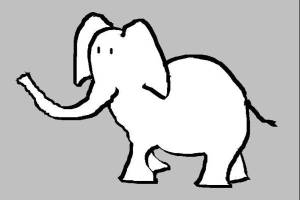The other day, I started rereading a book by Paul Kennedy called The Rise and Fall of the Great Powers - published 20 years ago.
He argued that the relative fortunes of powerful states are determined by their available resources and economic growth. This was illustrated by examples such as: the decline of Spain and France relative to Britain during the Industrial Revolution; the decline of Britain relative to America and Germany as those larger countries industrialised; and comparisons of the military potential of each side in various big wars (especially the Axis powers versus US, UK and USSR in WWII).
He spends a huge number of pages talking about nuclear weapons, missiles, submarines and tanks - in a way that we just don't anymore - whilst it was getting to the end of the Cold War, no one really knew (or expected) it at the time.
Looking at it now, the most interesting thing is his review of the 5 actual and potential 'great' powers of the mid-1980s: US, USSR, Japan, EEC and China; and their prospects as they approached the 21st Century. India doesn't get a look in.
China: He correctly expected China to continue its hectic growth but saw its main problem being that the agricultural sector was doing very well and people in urban areas were still very poor - the opposite of what we see today.
Japan: He didn't foresee the popping of Japan's growth bubble; making much of its technological edge - in those days we all assumed that the future for factories was in robots and computers rather than millions of Chinese workers.
EEC: His review of Europe was fairly gloomy, he didn't foresee the consolidation of the single European market nor its expansion as countries queued up to join the EU (of course, this was all before the Berlin Wall came down). Funnily enough he saw Britain as continuing its relative decline (smaller than Italy and France economically) and France as out-growing West Germany. Of course, nowadays we see the continental economies as being stuck in the doldrums...
USSR: His analysis of just how bad the Soviet economy had become is probably spot on; but, despite quoting Gorbachev's calls for reform, he held out little hope that the country would embrace Chinese-style economic reforms let alone Western-style freedoms. Within a few years, of course, Eastern Europe was free and the USSR ceased to exist (no one predicted that).
USA: Given all the examples in the rest of his book, it's surprising that he didn't examine the prospect that a declining USSR would leave the US as by far the most dominant military power in the world. Indeed, in discussing China, Japan and Europe he stresses how small their military capabilities are with respect to America. It's funny now to think that people seriously considered that Japan's economy might out-strip America's.
His projected growth rates may have been wrong (under-estimating US and UK growth, over-estimating Japan and France) but his fundamental point appears very relevant, e.g. Japan's economic growth stopped and America's accelerated, so Japan dropped away as a threat.
Given how hard it is to predict the future, let's not bother; but we can ask a few pertinent questions: will China continue to grow relentlessly or will this fundamentally over-populated and under-resourced country hit the buffers? will climate change severely dent the economic prospects of India and China with their low lying plains? will American growth collapse as oil runs out?
Tuesday, March 06, 2007
Subscribe to:
Post Comments (Atom)

No comments:
Post a Comment